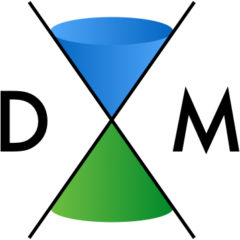We have an active group meeting program, with meetings at 1500 (CET or CEST as appropriate) most Tuesdays (July and August excepted) in Nordita South (unless otherwise stated).
These are usually informal presentations on current, ongoing or recent work, sometimes with talks from visitors and collaborators.
You can check the schedule and respective abstracts on our calendar.
07.05.2019
-
- –
14.05.2019
-
- General group meeting
17.05.2019
- Presentation by Vladimir Juricic.
Title: Dynamic quantum critical multiferroicity.
Abstract: Renormalization group analysis of a minimal quantum critical theory describing the dynamical coupling of the magnetic and the ferroelectric fluctuations in the case of an itinerant magnetic order.
21.05.2019
- Presentation by Kirsty Dunnett.
Title: connected or independent orders in strontium titanate? Some observations from a partial review of the literature.
28.05.2019
- Presentation by David Carvalho
Title: Ultrashort Nonlinear Optics in 2D Dirac Materials
Abstract: I will discuss non-perturbative methods to obtain estimates of photogenerated currents in graphene and transition metal dichalcogenides. The significance of the carriers’ Berry phase, as well as trigonal warping in the harmonic generation content will be analysed.
31.05.2019
- Presentation by Kirsty Dunnett
Time & Place: 3pm, Nordita south seminar room
Abstract: A brief (<20 minute) presentation of some of the work I have been doing in connection with laboratory teaching at university level.
04.06.2019
- Visitor at the Condensed Matter Seminar.
Speaker: Jens Paaske (Niels Bohr Institute, Copenhagen)
Title: Floquet Φ0-junctions, driven Goldstone bosons and stability of long-ranged order,
Time: Tuesday 4th of June, Fika 10:30-11:00 , Seminar 11:00-12:00
Place: Nordita South, room 112:028 .
Abstract: The quest for manipulation of quantum systems using time-dependent fields has brought on great advances in low-temperature microwave electronics. This opens new possibilities for designing mesoscopic devices and bulk systems, and a number of interesting ‘Floquet engineered’ phases of matter have already been predicted, including fx. frustrated magnets and topological insulators. In this seminar, I first demonstrate how a microwave driven double-quantum dot realizes a Josephson junction which carries supercurrent even with zero phase difference, a Floquet Φ0-junction. Like the already functioning transmon Qbit, this Cooper pair pump builds on non-adiabatic resonant photon absorption among the superconductor sub-gap states. The second part of the seminar deals with the effects of driving a 2D metal with an electronic gap hosting a Goldstone mode, here an itinerant zero-temperature antiferromagnet with spin waves. I assess the nonequilibrium Stoner mechanism, the subsequent modification of the spin-wave spectrum and finally the strongly pumped magnon occupation numbers, which quantify the magnetic fluctuations and hence the stability og long-ranged magnetic order. These insights suggest a zero-temperature nonequilibrium analogue of the Hohenberg-Mermin-Wagner theorem.
11.06.2019
- No group meeting.
18.06.2019
- Presentation by Sasha Kyriienko on Nonlinear Quantum Polaritonics in TMDs.
24.06.2019 (Monday)
-
Seminar (10 am, Nordita South) by H.Q. Lin, Beijing Computational Science Research Center.
-
- Title: Entanglement, Wilson Ratios, and Quantum Phase Transitions
- Abstract: In this talk, I report our works on using the entanglement and the Wilson ratio to identify quantum phase transitions. Applications to various widely used models are presented
25.06.2019
- No group meeting. Most of the group will be at the annual meeting of the VILLUM Center of Excellence in Dirac Materials in Aarhus, Denmark.
02.07.2019
-
Talk by group member Pavlo Sukhachov.
-
- Title: Electron hydrodynamics in solids: status and perspectives
- Abstract: In this talk, I will discuss the electron hydrodynamics in solids primarily focusing on the results obtained in the literature. At the beginning, a very brief introduction to hydrodynamics will be provided. Further, the possibility of the hydrodynamic description for electrons in solids will be discussed and a brief overview of recent studies will be presented. Next, I will formulate the electron hydrodynamics in Weyl and Dirac semimetals and show a few original results. In the end, future perspectives will be discussed.
10.09.2019
- Presentation by Roberto Díaz Pérez on Machine Learning in Matter at Different Scales.
Past Group Meetings:
You can find information on past group meetings here.
